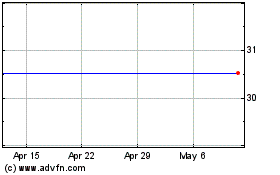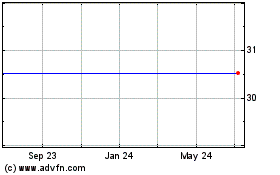By Erica E. Phillips
Sign up: With one click, get this newsletter delivered to your
inbox.
Mall retailers and department stores are finding it's getting
harder to grow without a top-notch e-commerce operation. Macy's
Inc., Kohl's Corp., J.C. Penney Co. and L Brands reported
weaker-than-expected sales in December, the WSJ's Sarah Nassauer
writes, capping a holiday sales season that showed retailers moving
in two very different directions. Amazon.com Inc. gobbled up market
share as more shoppers turned away from traditional department
stores and malls. But retailers Target Corp., Costco Wholesale
Corp. and Walmart Inc. reported strong sales, a result of work to
attract more shoppers online and investments in store operations
like e-commerce pickup and delivery. Macy's has updated some
stores, adding a better assortment of merchandise and technology,
but its older stores appear overstocked and even gloomy to many
shoppers. "The traditional department stores' days are numbered
unless they change radically," one analyst said.
The threat of a trade war is helping reset supply chains as
exporters in some countries find opportunities amid the disruption.
Most Asia-Pacific nations support removing trade barriers, the WSJ
reports, even as many are finding short-term opportunities to
attract manufacturing exporters seeking to avoid U.S. tariffs on
Chinese products. The trade battle is accelerating a trend of
manufacturing shifting from China to Southeast Asia. In Brazil, soy
bean farmers exported 10 million metric tons more oil seeds than
forecast last year. Japan's auto makers would stand to gain if the
U.S. and China imposed reciprocal car tariffs. Still, many
businesses say they prefer predictability and are eager to see the
dispute end. For Southeast Asia's manufacturing and shipping
businesses, supply-chain disruptions and slower global growth are a
larger threat. Logistics and transportation networks have
contributed increasingly to the region's economy as container-port
traffic has expanded there in recent years.
U.S. regulators are putting up another road block in Huawei
Technologies Co.'s supply chain. The Chinese telecommunications
giant can no longer ship certain technologies from its Silicon
Valley research-and-development unit after the Commerce Department
signaled it wouldn't renew an export license over security
concerns, the WSJ's Dan Strumpf and Kate O'Keeffe report. The
license covered the export of telecommunications technology and
software, including high-speed data-transfer technology made by
Futurewei Technologies Inc. in Santa Clara, Calif. Huawei has been
blocked from selling its telecommunications equipment in the U.S.
since it was labeled a national security threat in 2012. The U.S.
has pressured allies to keep Huawei equipment out of their
networks, and Huawei faces bans on its 5G equipment in several
countries. Futurewei will still be able to ship most of the other
goods made at its U.S. operation, however, because they don't
require an export license.
COMMODITIES
The world's biggest soybean buyer just gave DowDuPont Inc. a
late Christmas present. China approved the company's new
herbicide-resistant soybean, the WSJ's Jacob Bunge reports, opening
new markets for American farmers who are struggling to control
hard-to-kill weeds. DowDupont had been holding back on sales in the
U.S. as China considered the strain. Beijing's decision this week
on the Enlist soybean and other genetically engineered crops
developed by Bayer AG and Syngenta makes good on part of a trade
pact aimed at speeding up the biotech approvals process, which some
U.S. industry officials criticize as opaque. The move comes as
trade negotiators are working to ease tensions between the two
countries. Retaliatory tariffs drove U.S. soybean exports to China
down by 62% in the first 10 months of 2018, squeezing U.S. farmers
who are spending more on chemicals as herbicide-resistant weeds
spread across the U.S. farm belt.
QUOTABLE
IN OTHER NEWS
The number of Americans filing for new unemployment benefits
fell, but federal workers' claims jumped. (WSJ)
Several industrial sectors in China are experiencing
overcapacity. (WSJ)
Oil prices climbed Friday as concerns over global oversupply
receded. (WSJ)
A Chinese Huawei executive was charged with espionage in Poland.
(WSJ)
European officials are investigating Nike Inc.'s tax deals with
the Netherlands. (WSJ)
Target Corp. attributed strong holiday sales in part to its use
of stores as delivery and pickup hubs (WSJ)
Investor Edward Lampert raised his bid to more than $5 billion
for bankrupt Sears Holding Corp. (WSJ)
Apple Inc. plans to release three new iPhone models this fall.
(WSJ)
Fiat Chrysler Automobiles NV is spending $800 million to settle
allegations that it cheated on emissions tests. (WSJ)
Jaguar Land Rover will cut around 4,500 jobs in a restructuring.
(WSJ)
Honda is closing a plant in the U.K. for six days after Brexit.
(Financial Times)
Toyota is recalling 1.7 million vehicles in North America to
replace defective airbags. (IndustryWeek)
Kenworth Truck Co. and Toyota Motor North America are developing
electric hydrogen fuel cell heavy-duty trucks. (FleetOwner)
U.K. retailers experienced their worst Christmas in a decade.
(BBC)
Chinese acquisitions of U.S. companies declined 95% last year.
(South China Morning Post)
LG Chem Ltd. is investing another $1 billion to increase battery
production at a facility in Nanjing, China. (Nikkei Asian
Review)
U.S. apparel supplier Badger Sportswear cut ties with a Chinese
company that drew workers from an internment camp holding ethnic
minority group members. (Associated Press)
Tiffany & Co. plans to start sharing the country or region
of origin for some of its large diamonds. (MarketWatch)
State-run PetroChina and Yantai Port Group are jointly investing
$1 billion to build an LNG terminal at China's Yantai port.
(Platts)
Bottlenecks for offloading imported fuel are forming at some
Mexican ports following government orders to shut pipelines.
(Reuters)
Maersk Line and Mediterranean Shipping Co. are expanding their
cooperation with Israeli container line Zim. (Shipping Watch)
A fire aboard Hapag-Lloyd AG's Yantian Express has been brought
under control after seven days. (MediTelegraph)
Hapag-Lloyd named McKinsey & Co. consultant Maximilian
Rothkopf as its chief operating officer. (American Shipper)
Many port automation projects around the world are leading to
declines in container-handling productivity. (Lloyd's Loading
List)
Rail freight traffic from Europe to Chongqing in China exceeded
westbound traffic in 2018. (RailFreight)
Economists in Singapore found that exposure to air pollution can
reduce worker productivity in some industries. (Sourcing
Journal)
ABOUT US
Paul Page is editor of WSJ Logistics Report. Follow him at
@PaulPage, and follow the entire WSJ Logistics Report team:
@costasparis , @jensmithWSJ and @EEPhillips_WSJ. Follow the WSJ
Logistics Report on Twitter at @WSJLogistics.
Write to Erica E. Phillips at erica.phillips@wsj.com
(END) Dow Jones Newswires
January 11, 2019 12:11 ET (17:11 GMT)
Copyright (c) 2019 Dow Jones & Company, Inc.
Dowdupont Inc. (NYSE:DWDP)
Historical Stock Chart
From Mar 2024 to Apr 2024

Dowdupont Inc. (NYSE:DWDP)
Historical Stock Chart
From Apr 2023 to Apr 2024
